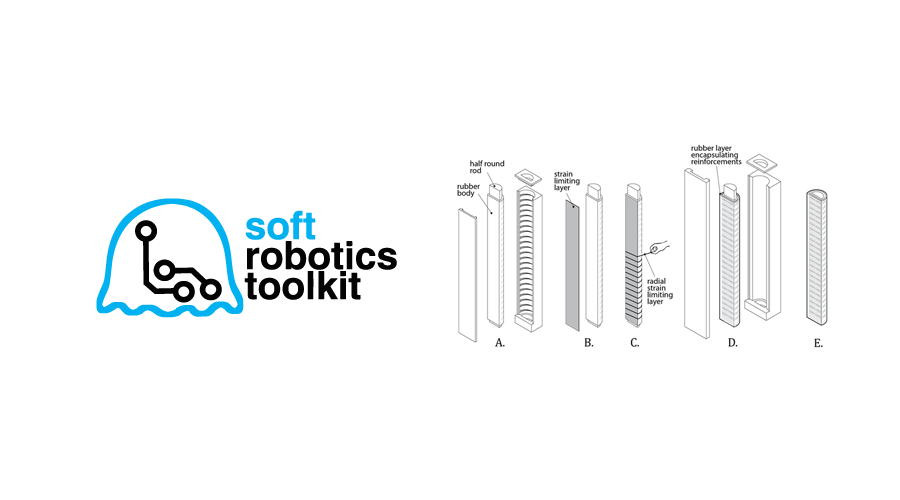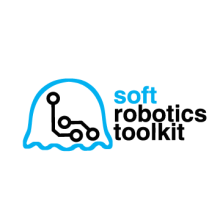
Robohub.org
Two new soft robotics competitions announced by Soft Robotics Toolkit

The Soft Robotics Toolkit recently announced two competitions for robotics research and design. In July 2015, two expert panels will award prizes to soft robotics projects submitted by students, researchers, and designers. The first competition focuses on research contributions in the area of soft robotics, while the second awards novel designs that make use of soft components.
Soft robotics combines the design of electromechanical systems with the study of soft and flexible materials, often inspired by biological systems. A growing number of research groups, companies, and individual designers and makers have been contributing to the field in recent years. The Soft Robotics Toolkit was launched in September 2014 and is intended to enable students, designers, and researchers to share and build upon each other’s work in this exciting area. The toolkit is a website containing documentation on the design, construction, and characterization of soft component technologies including sensors, actuators, and control boards.
In the seven months since its launch, the toolkit has had almost 250,000 page views by over 40,000 users in 150 countries. In light of the incredible outpouring of support from the community, the toolkit development team has announced two competitions for soft robotics design and research. The aim of these competitions is to recognize those who make soft robotics such an exciting area and to reward individuals and teams who advance the field.
The first competition, the 2015 Prize for Contributions in Soft Robotics, is intended to support and promote research that advances the field of soft robotics. The toolkit website currently contains documentation from seven research groups at Harvard and ETH, and further contributions from leading soft robotics groups at other institutions are forthcoming. Researchers are invited to submit original work to the toolkit in order to be considered for the prize. An international panel of expert judges will award one entry a grand prize of $5,000. Example entries might include new control architectures or component technologies, novel methods of modeling and analyzing compliant electromechanical systems, or new experimental procedures for characterizing soft devices.
The second competition, the Soft Robotics Design Competition 2015, rewards individuals and teams who create new and interesting devices using material they can find on the toolkit website. Example projects might include robots capable of manipulating delicate objects or of novel forms of locomotion, or improved control systems for soft robotic systems. Eligible designs may be entirely “soft,” or may combine traditional rigid robotic elements with soft components. The only limitation (besides entrants’ imaginations) is that the design must make use of at least one component technology from the Soft Robotics Toolkit website. The judging panel, composed of designers and researchers from industry and academia, will select a winning entry and two runners-up for prizes of $3,000 and $1,000 respectively.
In order to be considered for the awards, entrants must register by May 15th, with the final project documentation due June 15th. The response so far has been fantastic. To date, 66 teams have registered to participate, with 23 countries and 34 universities represented. For more information on how to participate, please see the competition website.
tags: c-Research-Innovation, Competition-Challenge, cx-Events, robohub focus on soft robotics, soft robotics, Soft Robotics Toolkit





